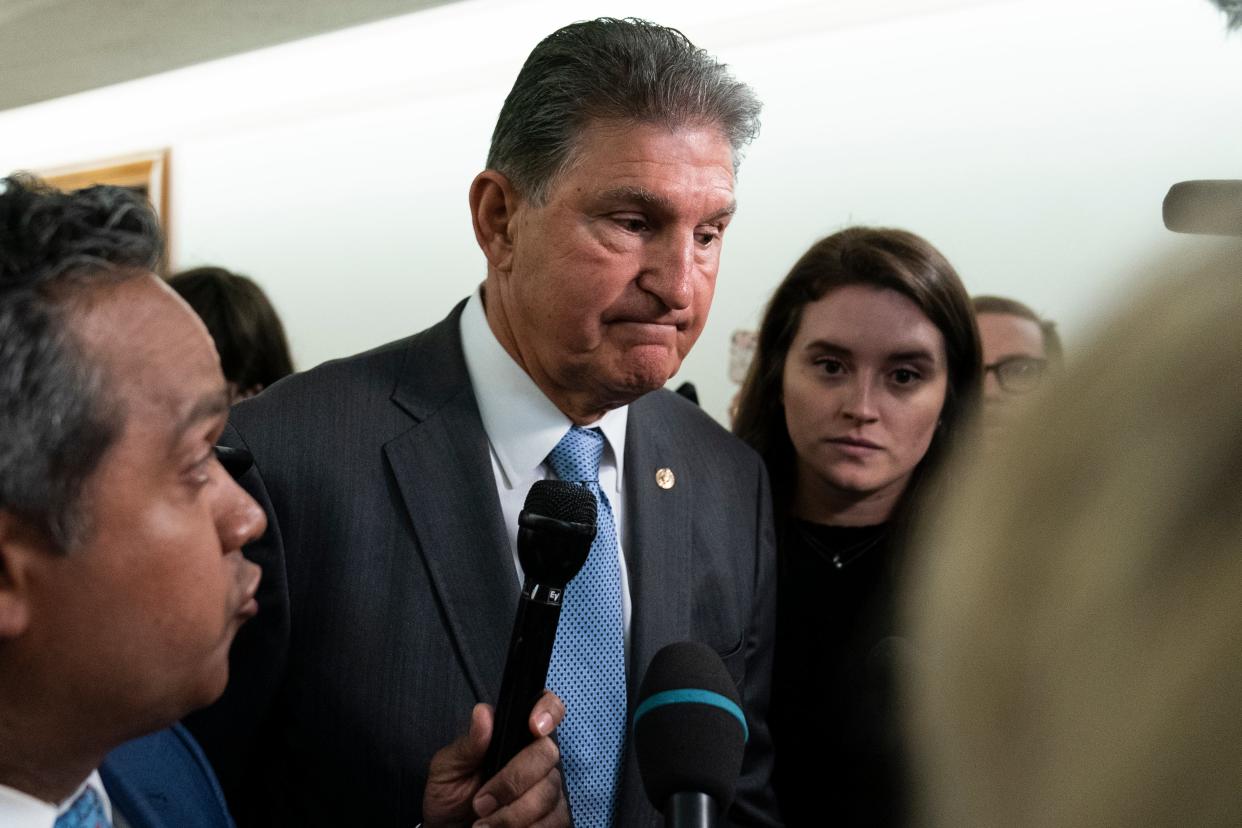Democratic senator faces voting rights march in his own state over For The People Act opposition

- Oops!Something went wrong.Please try again later.
- Oops!Something went wrong.Please try again later.
- Oops!Something went wrong.Please try again later.
The Poor People’s Campaign will march in West Virginia to protest Senator Joe Manchin’s opposition to a sweeping voting rights measure and filibuster rules that risk jeopardising a critical Democratic agenda in the Senate.
The Rev William Barber announced that the campaign, which revives the 1968 economic justice campaign from Martin Luther King Jr and the Southern Christian Leadership Conference, will hold a “Moral March on Manchin” on 14 June in the senator’s home state.
The campaign will also target Mr Manchin, a Democrat, and Republican Senate Minority Leader Mitch McConnell in Washington DC in June.
Senator Manchin met with several civil rights leaders on Tuesday to discuss the For The People Act, which would standardise voting access at the federal level, eliminate long-standing barriers to voting and allow candidates with smaller platforms to wield more political power.
It proposes automatic voter registration, at least 15 consecutive days of early voting for federal elections, and mail-in voting and drop boxes for absentee ballots, among a host of other proposals wrapped into the bill. It would also make it more difficult to purge voters from voter rolls and would restore voting rights to formerly incarcerated people.
The senator told reporters in Washington that he had a “constructive” meeting but “I don’t think anybody changed positions on that.”
He met with NAACP president Derrick Johnson, National Urban League president Marc Morial, Al Sharpton, Lawyers’ Committee president Damon Hewitt, National Council of Negro Women president Johnnetta Cole, Wade Henderson of The Leadership Conference on Civil and Human Rights, and National Coalition on Black Civic Participation president Melanie Campbell.
“We had a constructive conversation,” Senator Manchin told reporters. “I think everybody pretty much knows the importance of what we’re doing, and I think I’m very much concerned about our democracy, protecting people’s voting rights.”
But asked whether he would support the measure, after he announced his opposition in an op-ed on Sunday, he said: “No.”
The senator is the only remaining Senate Democrat who has not signed on as a co-sponsor of the bill.
When a similar measure was introduced in 2019, he was among 49 of its co-sponsors.
He has instead urged senators to support a renewal of the landmark Voting Rights Act with the John Lewis Voting Rights Advancement Act.
House Speaker Nancy Pelosi said on Tuesday that the John Lewis bill “must be passed” but it is “not a substitute” for the provisions in the For The People Act, which Democrats and voting rights advocates hope can serve as an antidote to a wave of suppressive elections bills filed in the wake of Democratic victories and high voter turnout in 2020 elections.
Speaker Pelosi said the John Lewis bill, named after the late civil rights leader and Georgia congressman, won’t be ready until the fall.
Senate Majority Leader Chuck Schumer intends to bring the For The People Act to the Senate floor for a vote by the end of June, despite GOP obstruction with filibuster rules that require 60 votes in the evenly divided chamber to proceed with legislation.
Senator Manchin also has rejected calls to reform the filibuster even as it risks Democrats’ centrepiece legislation, from voting rights to infrastructure and combatting the climate crisis, while his party holds a narrow majority in Congress.
Read More
White House argues that voting rights protections are a national security issue
Trump praises Manchin for keeping filibuster after telling Republicans to get rid of it for years
Democratic senator Joe Manchin says he won't back Biden's election reform bill
More than 100 new restrictive voting laws proposed across US since February

